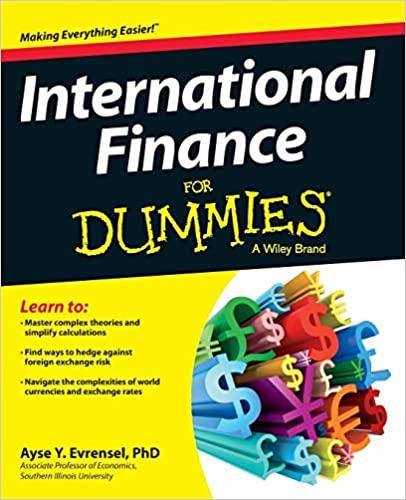Question
1. Using the material youve learned so far and the reading Inductive Reasoning Part 1, explain the difference between a sound argument and a cogent
1. Using the material youve learned so far and the reading Inductive Reasoning Part 1, explain the difference between a sound argument and a cogent argument. Give an example of each.
2. To the best of your ability, explain the difference between certainty and objectively probable. Give examples.
3. Explain the difference between probabilities and statistics and how one is used to inform the other. Give examples.
4. In your own words, explain the difference between inductive and deductive logic.
5. Using the video, Why Probability is Important, list five reasons to study probability theory. Choose two of these reasons and explain why each is either a compelling reason for you or not a compelling reason for you.
6. To the best of your ability, explain the difference between the classical and logical interpretations of probability.
7. In your own words and to the best of your ability, explain a significant problem for the classical interpretation of probability. (I am not looking for a technical, mathematical answer here. Feel free to explain the problem in informal terms using examples if you need to.)
8. Using the video, Probability The Logical Interpretation, explain the concept of conditional probability.
9. In your own words, what is the benefit of the frequency interpretation of probability over the other two covered in this unit?
10. Choose one of the objections to the frequency interpretation of probability and explain it in your own words.
Step by Step Solution
There are 3 Steps involved in it
Step: 1

Get Instant Access to Expert-Tailored Solutions
See step-by-step solutions with expert insights and AI powered tools for academic success
Step: 2

Step: 3

Ace Your Homework with AI
Get the answers you need in no time with our AI-driven, step-by-step assistance
Get Started


